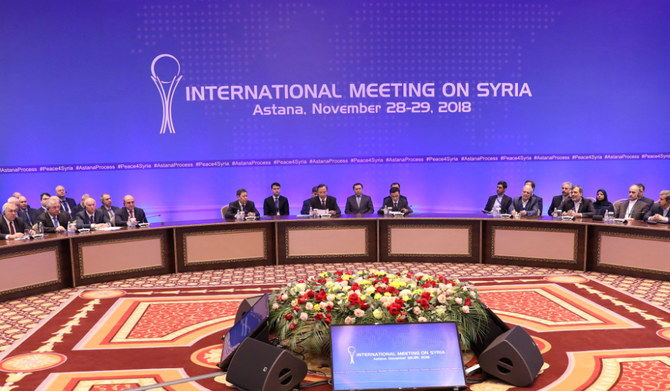
Many did not believe this day would come. Others just feared it would. To the tune of “Auld Lang Syne,” the European Parliament bid auf wiedersehen to Britain on Wednesday night following its final vote to endorse the withdrawal agreement. It may not be lost on those present that Brexit was a very English affair, so the choice might resonate. The Scottish folk song is usually a farewell song but is also used at funerals.
Take your pick, but the last hurdle has been pushed aside and Britain is leaving this club of 28 European nations, a love-hate relationship that had lasted 47 years since 1973. A mass of Union Jacks was taken down. With no seat at the table and no voice inside EU Council meetings, many question how much influence Britain will retain in Brussels going forward.
The formalities dealt with, the party or funeral kicked off at 11 p.m. on Jan. 31. Big Ben, the iconic London timepiece, did not bong for Brexit, as some campaigned for, but this did not dampen the spirits of die-hard leavers. They queued up to fill their pockets with the specially reminted 50p Brexit coin; the first batch of 1 million had had to be melted down after previous Brexit deadlines were missed.
A nation divided, one half in joyous celebration, the other in abject mourning. They may as well be in two different hemispheres. One prominent Brexiteer could not wait to “watch the sun rise on a free country.” Most remainers can only think of the freedoms lost, such as the right to travel, live and work in any part of the EU.
Remainers can just hope that the Brexiteer vision of a new dawn for a global Britain proves to be true. And who knows? Some Brexiteers may come to rue the day that ditching the EU removed the easy target that the bloc provided for any ills that befall Britain.
One half sees a country liberated from the yolk of European colonization; the other committing political, economic and national suicide as Britain ejects itself from the comforting security of the pan-European embrace. For the former, Jan. 31 is independence day, something Brexiteer Nigel Farage once noted was achieved “without a single bullet being fired.”
Yes, the arguments for the last three years have been that facile, with the unnerving tendency to hark back to the Second World War as if it had never ended. Many believed that the British were still at the rough end of German bullying, and that they are leaving Brussels much like the glorious heroes who retreated from Dunkirk in 1940. David Cameron was Neville Chamberlain to Boris Johnson’s Winston Churchill.
The UK had entered the European Economic Community in 1973, at a time when the country seemed to have no other choice — destitute, having lost an empire, and having gained nothing from the war. The belief was that Britain had nowhere else to go. In 2020, Brexiteers see a world ready to embrace a country with the flexibility to chart new relationships. Is Britain ready to go it alone?
The country will slip into February still unsure of its future, and uncertain as to its role and even its identity. The prime minister buzzes with inexhaustible optimism and positivity, yet his showmanship cannot paper over the uncharted waters ahead. As the European Parliament was voting, Scotland’s was voting for a second independence referendum, something that can only go forward with the British government’s approval. It highlights the UK’s fragility.
Moving forward, most of the more serious changes will only come into being with the end of the transition period on Jan. 1, 2021. The government has issued sober advice that outlines how UK citizens will be affected, including that travelers may require visas for trips longer than 90 days and visas for work, and that mobile roaming charges may be applied when traveling to the EU. International driving licenses may be required in some countries.
As for businesses, much preparation still needs to be done, with 38 percent of small and medium-sized enterprises saying they are still unprepared for Britain leaving the EU. Given the government’s position that puts the emphasis on sovereignty, they must expect extra paperwork and physical checks on any goods crossing the border.
Where does this leave the EU, one member short and with 65 million fewer citizens? Britain had always been the balancing act between competing Teutonic and Gaullist ambitions, brokering the differences between Paris and Berlin. The EU will miss the vital assets of Britain’s sizeable diplomatic service, pragmatism and global experience.
Views will be mixed as to whether the UK’s role as a bridge to the US is a benefit or a mirage. Others may be glad to get rid of the troublesome lot across the channel who always held the EU back from ever-closer integration.
Britain may now be out, but the Brexit process is far from over. Five weeks remain until formal trade talks commence. The EU will not be ready until at least Feb. 25. Once again, Britain’s negotiating aims are immersed in the dense fog of uncertainty. The two sides will have to agree some order of priority for the 20-30 topics for negotiation, with the EU wanting to frontend agriculture and fishing.
The British ambition is to seek a “zero tariff, zero quota” free trade deal but with “regulatory autonomy,” with full details to be released after Jan. 31. EU leaders smell another bout of Britain wanting to have its cake and eat it.
Chris Doyle is director of the London-based Council for Arab-British Understanding. Twitter: @Doylech












